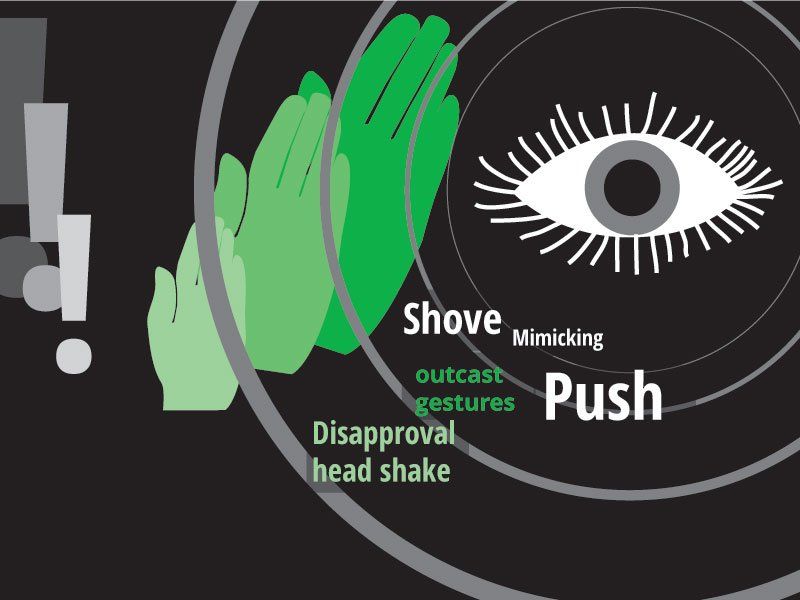
for Relationships

A series of information and guides are developed in connection with "Is this the right value ?" project "Non-verbal abuse".
This project which highlight awareness against the kind of prejudice which people with people with invisible difficulties faces which can harm their sense of value and their way of life.
A Combination of steps you should take to combat this problem
* Be aware of the warning signs no matter how small or weird
* Also be aware of what can happen if the matter, is ignored.
* Ask questions an on the kind of person which more likely to cause a scene if the person with invisible difficulties expense
* If you notice they are uneasy, upset or emotionally never tell them off or make and lectures on their behaviour at any level you are making them feel that using their difficulties as blame on something is not their fault & you are humiliating them. In addition of the bully notice your interaction with the affected person with a signal thinking they have won and seen this as an encouragement to escalate the abuse further.
* Non-verbal insults aim to hurt aimed cause indirect insult. If you don't notice this and the person affected has stood up the offenders. Never tell a person with difficulty off for exercising their dignity or to tell them they are causing trouble. Also never create an argument by accusing them of embarrassment. Not only you let the offender win, the person with difficulty will be more likely not to be comfortable with spending time with you and they will not forget the hurt you have escalated.
* Never use your impatience to push, shove or to grab a person with invisible difficulties body. Also, you should never disrupt what person with invisible difficulty when they are undertaking a practical task or by grabbing items of them during any practical actions (especially when they are not causing physical harm to you to them or to the surrounding environment). Instead, ask them to stop and communicate any corrections needed or to make suggestions calmly shortly after the situation happened and don't create an attitude to use them upset further in any way.
Remember the person with difficulties is not intended to irritate you or to test your patience.
The information above is a summary information of tips & suggestions.
A more detailed guides & factsheet to be available for print & digital formats (optimised for desktop or mobile & tablets)
In addition this project can be customised with a series of a more detailed materials on a form of guides, facts sheet and detailed guidelines can be developed as service within 8 focused life group areas.
If you feel this and other projects can benefit your business, organisation, community or a public service please get in touch on the enquiry form over on the Plus Value Fusion website.
Please state your name, job position, organisation and how will the project can benefit you
The focus group areas is made up of 8 sections
Including: Business, Community, Relationships, Public Services, Education & Work, Government related services, Society and people with invisible difficulties.
The description “Invisible Difficulties” are used for this initiative which covers independent, intelligent and articulate adults and young people who live with specific difficulties which as hidden and would not be visually obviously at first impression. The examples including memory, on the spot thinking ability, communication, reading, writing & calculation. These example above mainly relates certain people with Autism (at moderate and high-functioning level), ADHD, Social Anxiety, Dyspraxia and Dyslexia. Click here for more details.
This project is linked with
A primary awareness element of the Plus Value family



